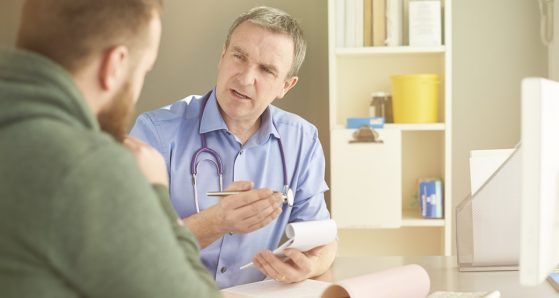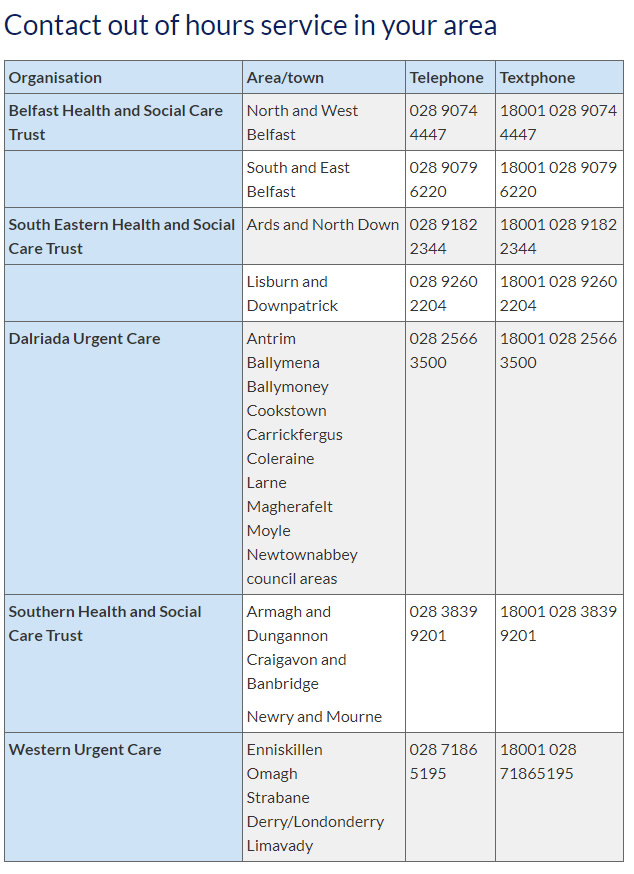How We Can Help
You and Your GP
The relationship between you and your GP is a significant part of any long-term management plan.
Early management of M.E appeared also to be a major determinant of severity and with the vast majority of people with M.E consulting their GP in the early stages of their illness finding a doctor who is understanding and informed about M.E can be life changing for many.

Common Questions
FAQS
CAN I ASK MY GP TO REFER ME TO A SPECIALIST?
A large number of GP’s find M.E to be one of the hardest conditions for referral due to the lack of M.E specific services within the NHS in Northern Ireland.
However, your GP may refer you to a number of other specialists including: Neurology
Neurology Pain clinic
Pain clinic Gastrointestinal and liver service
Gastrointestinal and liver service Immunology
Immunology Cardiology
Cardiology Sleep disorder clinic
Sleep disorder clinic
Note: Lobbying
Countess of Marr precedent established that a patient has the right to travel to other parts of the UK to receive adequate treatment.
CAN I REQUEST SPECIFIC MEDICATIONS FROM MY GP?
Yes. It may be help to talk with our members to see what medications have helped them. However, due to the complex nature of M.E oftentimes a medicine that helps one person may not help you.
The final decision about whether a specific medication is right for you will have to be made by your GP.
HOW OFTEN SHOULD I SEE MY GP?
This will vary greatly case-by-case depending on the severity of your symptoms and the medications that you are on.
If you are prescribed medications to treat symptoms of M.E, it is important to have these reviewed regularly.
Additionally, infrequent visits to your GP will make it difficult to build up a relationship with them and we know that a good relationship with your doctor it vital to achieving the best outcome possible.
HOW TO EDUCATE MY GP?
Due to the lack of training and education received by GP about M.E it is very likely that you know more about your illness than they do. This creates great frustration for both parties and it can result in the breakdown of GP-patient relationships.
If you find that your GP is open to learning more about M.E contact us and we can provide a package of information written by medical professionals and researches specifically for other doctors. This is more likely to be well received by your GP over printouts from websites/blogs that are not academically sourced.
KEEP YOUR OWN MEDICAL RECORD
M.E is a complex illness with many symptoms to manage, it is common for people with M.E to have memory problems making it extra important to keep track of: any symptoms, when they appear, how sever they are
any symptoms, when they appear, how sever they are a list of any medical professionals you have seen over the years
a list of any medical professionals you have seen over the years the results of medical tests (Bloods, CT Scans, etc.)
the results of medical tests (Bloods, CT Scans, etc.) a list of medications you have been prescribed, if they were helpful and any side effects
a list of medications you have been prescribed, if they were helpful and any side effects
You can also get a copy of your own medical files for a fee.
CAN I LODGE A COMPLAINT AGAINST MY GP?
Yes, and there are various ways in which a complaint can be lodged. Talk to your practice manager or any member of your GP surgery about your complaint. Oftentimes even a brief conversation can help resolve many issues. If you need help with making a complaint the Patient Client Council can provide free and confidential advice. PCC Helpline: 0800 917 0222
HOW DO I CHANGE GP SURGERIES?
If you find yourself feeling that your current surgery is unable to properly treat you then it is within your rights to change to another one. The process is simple; the most difficult part is finding a surgery to take you on.
It may be worth talking to other people with M.E from your area and asking for recommendations about what surgery would be right for you or you can contact the surgery’s nearness to you with the hope of finding an appropriate GP.
The Role of The Pharmacist
Your local pharmacist does much more that dispense medicine and they are worth consulting for medical advice on less severe issues or while you wait on an appointment with your GP.
Our of Hours Service
This exists for people who need urgent medical care can cannot wait until their GP surgery reopens.
GP out of hours’ services are: 6.00 pm on week days until your GP surgery opens the next morning
6.00 pm on week days until your GP surgery opens the next morning 24 hours on Saturday and Sunday
24 hours on Saturday and Sunday 24 hours on public holidays
24 hours on public holidays
The nurse or doctor may give you medical advice over the phone, meet you in person or send you straight to A&E.


Things To Remember
 Remember that the relationship between you and your GP works both ways, so while your GP should treat you with respect and compassion it is expected that the patient reciprocates.
Remember that the relationship between you and your GP works both ways, so while your GP should treat you with respect and compassion it is expected that the patient reciprocates.
 It is unrealistic to expect your GP to know everything about M.E (as they receive inadequate training) so the emphasis should be on working together to strengthening their knowledge.
It is unrealistic to expect your GP to know everything about M.E (as they receive inadequate training) so the emphasis should be on working together to strengthening their knowledge.
 If you book a 10-minute appointment, stick to it. You can book longer appointments if you feel like it’s necessary.
If you book a 10-minute appointment, stick to it. You can book longer appointments if you feel like it’s necessary.
 Try and visit the same GP each time, this helps maintain continuity of care.
Try and visit the same GP each time, this helps maintain continuity of care.
 Bring a family member or friend with you for support or to help describe your symptoms. Ideally, this would be the same person each time to maintain continuity of care.
Bring a family member or friend with you for support or to help describe your symptoms. Ideally, this would be the same person each time to maintain continuity of care.
 Focus on one symptom at a time, and explain your issues in a straight-forward away as possible.
Focus on one symptom at a time, and explain your issues in a straight-forward away as possible.
 Speak up if you feel like the treatment option your GP is prescribing isn’t for you.
Speak up if you feel like the treatment option your GP is prescribing isn’t for you.
 Don’t hand your GP a pile of information printed from the internet and expect them to read it then and there, unfortunately many doctors won’t be receptive to this. However, handing your GP information produced by charities for doctors may be better received.
Don’t hand your GP a pile of information printed from the internet and expect them to read it then and there, unfortunately many doctors won’t be receptive to this. However, handing your GP information produced by charities for doctors may be better received.
